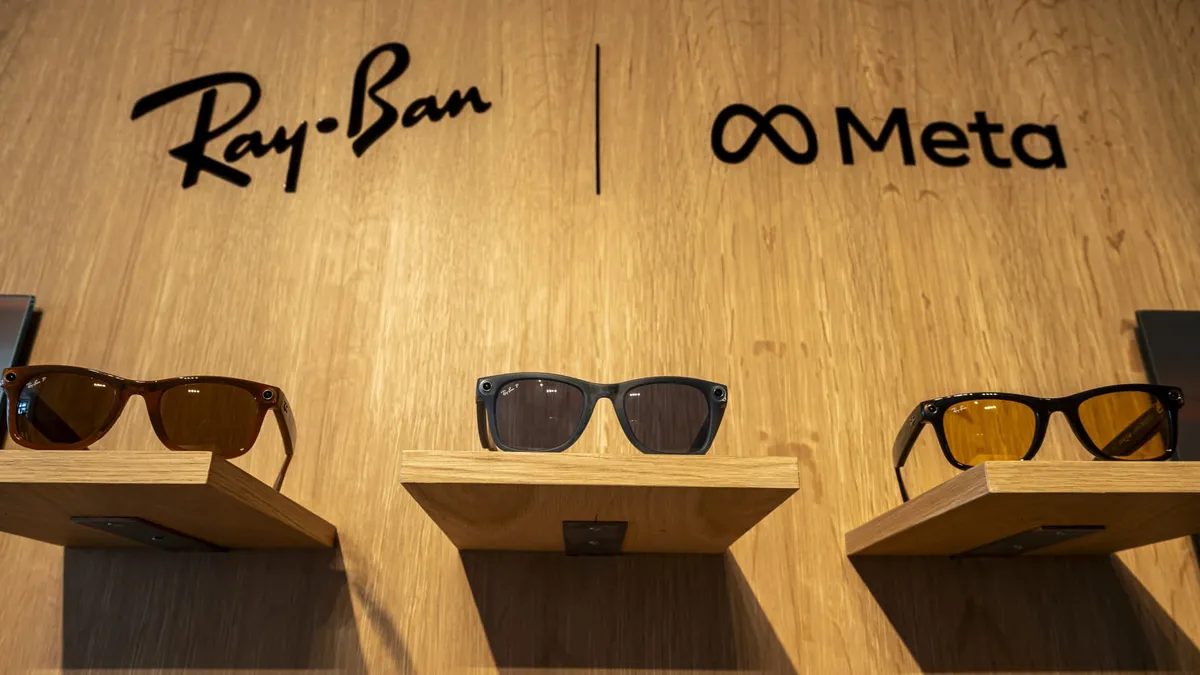
Meta Platforms has made waves in the tech industry with the successful launch of their smart glasses, a collaboration with the Franco-Italian eyewear company EssilorLuxottica. Since hitting the market in late 2023, Meta has sold more than 2 million pairs of these innovative glasses. During a post-earnings call on January 29, CEO Mark Zuckerberg revealed that sales are accelerating, describing the Ray-Ban Meta AI glasses as a “real hit.” However, he acknowledged that the long-term trajectory for the product remains uncertain, emphasizing that 2024 will be a crucial year for learning more about its potential.
Meta is no stranger to the world of wearables. In 2014, the company acquired Oculus, a virtual reality goggles company, for $2 billion, integrating it into its Reality Labs division. However, the partnership with Ray-Ban marks Meta's first endeavor to create a connected experience through everyday glasses that people might actually want to wear. The pricing for these smart glasses ranges from $299 to $379, depending on prescription and customization options. In addition to the Ray-Ban collaboration, Meta is reportedly working on Oakley-branded smart glasses, as noted by Bloomberg.
While Meta's Ray-Ban smart glasses have gained traction, the journey of smart glasses has been fraught with challenges. Previous attempts, such as Google Glass launched by Alphabet in 2014 and Snap's Spectacles introduced in 2016, struggled to achieve mass adoption. Chris Cox, Meta's chief product officer, stated at a recent Morgan Stanley conference that the Ray-Bans are still in the early stages of accessibility, aiming to make the product available to everyone who desires it. Despite this, the financial impact of the smart glasses on Meta's overall revenue remains minimal, especially when compared to its lucrative social media advertising business.
Despite their modest impact on Meta's finances, demand for smart glasses is on the rise. Market research firm Counterpoint reported that global smart glasses shipments surged by 210% year-over-year in 2024, largely fueled by the success of the Meta Ray-Bans. As competition heats up with major tech players like Xiaomi, Samsung, Baidu, and ByteDance preparing to enter the market, Counterpoint predicts a further 60% growth in the smart glasses market by 2025, with a sustained compound annual growth rate of over 60% through 2029.
Zuckerberg believes that the Meta Ray-Bans, which allow users to engage with their surroundings through voice commands, have the potential for lasting impact. The company ramped up marketing efforts during the Super Bowl, featuring high-profile actors like Chris Pratt and Kris Jenner in their advertisements. These 30-second spots commanded prices as high as $8 million each, indicating Meta's commitment to making these smart glasses a household name. Zuckerberg anticipates that 2025 will be a defining year for AI glasses, drawing parallels to significant consumer electronics that achieved sales of 5 million to 10 million units in their third generation.
Meta and EssilorLuxottica's collaboration began in 2019, leading to the release of two generations of Ray-Ban smart glasses. In 2024, they extended their partnership into a long-term agreement, aiming to develop multi-generational smart eyewear products over the next decade. EssilorLuxottica plans to manufacture 10 million units annually by 2026. Zuckerberg envisions smart glasses as a vital computing platform for the future, similar to how smartphones transformed communication and technology.
While it remains premature to predict whether these glasses will revolutionize technology like smartphones or smartwatches, analysts like Andrew Boone from JMP Securities suggest that monetization potential is still years away. However, the glasses offer pathways for AI distribution, positioning them as both a consumer product and a long-term platform for AI services. Meta's approach mirrors its growth strategy with Facebook and Threads, focusing on building user engagement before introducing ads.
Analysts like Brad Erickson from RBC Capital Markets view Meta's smart glasses as part of a larger strategy to diversify beyond social media, allowing the company to offer more utility to users while driving ad revenue. Additionally, the smart glasses provide Meta with an opportunity to reduce dependence on Apple's iOS ecosystem by integrating their own hardware and software.
Meta is not resting on its laurels; the company recently unveiled the Aria Gen 2, an experimental version of its smart glasses intended to advance research in AI, robotics, and machine perception. At a recent developer conference, Zuckerberg showcased a prototype of augmented reality glasses named Orion, representing a fusion of the Quest headsets and Ray-Ban smart glasses. As the competition intensifies and technology evolves, the future of Meta's smart glasses remains an exciting space to watch.